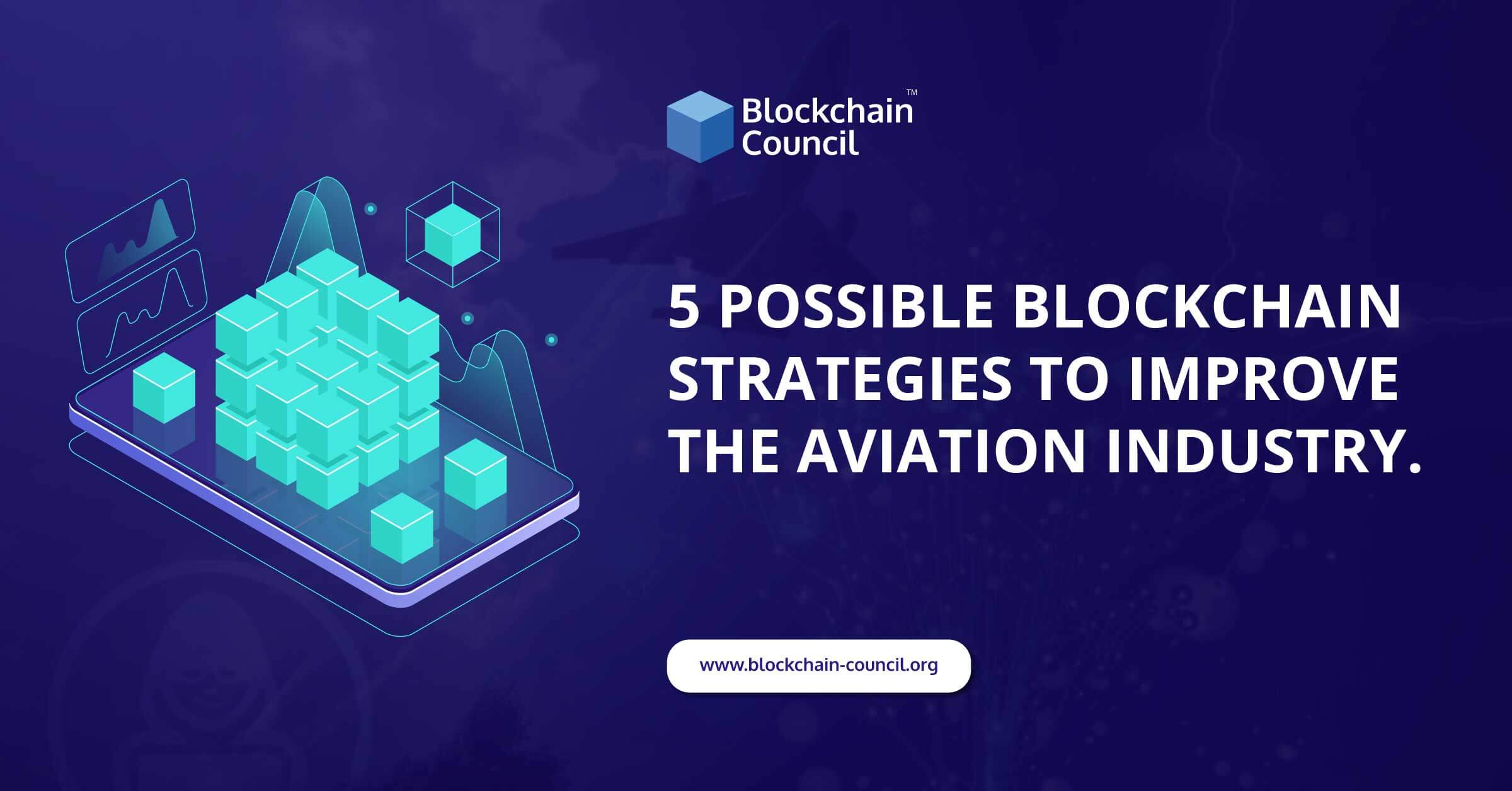
- Toshendra Kumar Sharma
- January 30, 2020
Many leading airlines today are experimenting with the latest digital technology innovations such as robotics, machine learning, artificial intelligence, advanced analytics, etc. Blockchain is another technology that is now poised to provide fertile ground for change within the aviation industry. Though blockchain technology is still in its face of infancy, several airline companies have already started exploring applications that help improve overall performance. Blockchain is one such disruptive technology that promises to solve issues relating to trust, security, transparency, and control within a complex ecosystem of industry players. These industry players are partner airlines, airports, global distribution systems, online and offline travel agents, public authorities, service providers, and other travel industry players like car rental companies and hotels.
Being a decentralized, secure digital ledger, the aviation industry can benefit from the blockchain and its capabilities to cut costs and boost operational efficiency.
Benefits Of Blockchain For The Aviation Sector
The current landscape of the airline sector is siloed and archaic and hinders the fast and seamless exchange of data in the complicated and intertwined airline ecosystem. Blockchain is the ideal solution to address these problems as its shared nature and a decentralized approach to security, information exchange, and data management help improve transparency, speed, and responsiveness. Blockchain, on the whole, helps saves time and money, thus paving the way for new business models.
Having understood the general benefits of blockchain, let us now understand the specific areas in which blockchain benefits the aviation domain.
1. Identity Management
It is highly possible to forge the identities of individuals and use them for some fraudulent or terrorist activities. This problem can be solved with blockchain as it validates identities with the help of biometrics. As a blockchain network is decentralized, an identity, once validated and stored on the blockchain, is impossible to modify due to its highly protective nature. This will result in eliminating the use of paper passports and reducing human errors in the checking process.
2. Ticketing Through Tokenization
Currently, airplane tickets take the form of paper or electronic passes. By implementing a blockchain network, there will no longer be any need to use paper tickets, and it will be possible to tokenize e-tickets with the help of smart contracts. Tokenized tickets can have their set of terms and business logic associated with them like the process of selling tickets and their real-time usage in the value chain efficiently and securely. This way, people will be able to purchase tickets globally from different partners.
3. Maintenance
Maintenance logs regulate airlines, service providers, traders, and manufacturers. These are time-consuming and are prone to errors in case of wrong entries at any point in time. Blockchain removes the need for complex databases and paper binders and enables airline companies to manage a single record of provenance, which would be instantly available to all the authorized people. This will help in setting maintenance events priorly. This information will also be available on the aircraft maintenance records, which will improve maintenance, save time, and ensure safety.
4. Loyalty Points
Any customer loves rewards, and it has a psychological effect on their behaviour, which will make them more loyal to a brand. Loyalty points or reward points create a win-win situation for both the consumers and the company. Loyalty programs are known to have the potential to generate almost 20 per cent of a company’s profits. When loyalty points and schemes are tokenized through blockchain, it will provide immediate value to the users as it will be possible for them to use it in real-time. Loyalty points can be used broadly through a partner community. Points that replace the role of currency helps travellers save time and make payments with ease.
5. Security
Information privacy is crucial for industries by sharing their personal details for the better functioning of the systems. Passenger records and crew information of airlines must be kept secured as any mishap can lead to misuse of identities and other dangerous outcomes. Blockchain, along with a secure wrapper, creates a safe medium to share data through authorities.
Conclusion
Blockchain carries with it the immense potential of being a disruptive force that can transform the aviation sector for the better. Apart from these areas, blockchain can also be applied in aviation for collaborative decision making, passenger compensations, planning, and flight entertainment. What is certain is that forward-looking airline companies that use other digital technologies and, in particular, blockchain, to fundamentally rethink their businesses will gain the greatest benefits.





































































 Guides
Guides News
News Blockchain
Blockchain Cryptocurrency
& Digital Assets
Cryptocurrency
& Digital Assets Web3
Web3 Metaverse & NFTs
Metaverse & NFTs
